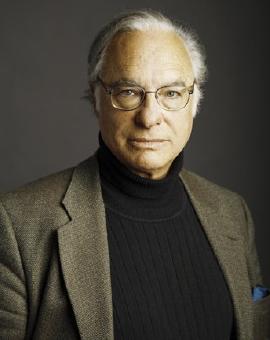
Not that Massimo — this one. And “it,” of course, is neo-Darwinism, or the Modern Synthesis: textbook evolutionary theory.
There’s nothing especially novel in saying that evolutionary theory can function as a secular religion, which is Piattelli-Palmarini’s main point in his new article. Michael Ruse has said as much for years.
What has changed within the past couple of years, however, is the rapid growth in the overtly religious (anti-religious, but that anti doesn’t really matter) content of the writings of prominent neo-Darwinian biologists, such as Jerry Coyne and Richard Dawkins. The Accomodationist Wars, which show no signs of slacking, illustrate that for many, the whole point of evolutionary theory is Getting Rid of God. A biologist who nonetheless professes his theism (Ken Miller, Simon Conway Morris, Francis Collins, et al.) — well, those people are, at best, confused. Evolution properly understood is irreligious. Not “irreligious” in the sense of indifferent or neutral. Hostile. Read the traffic at Pharyngula, Why Evolution is True, Dawkins’s site, Sandwalk, or dozens of other blogs and discussion boards. [Just to be clear: I (PN) don’t think the theory of evolution is irreligious, in the sense of hostile to theism. Philosophical naturalism, however, is. But evolution and naturalism are typically conflated by their advocates.]
The fact that Piattelli-Palmarini, like his co-author Jerry Fodor, is himself an atheist, throws a palpable irony over his recent experiences at the receiving end of impassioned attacks charging treachery concerning his challenges to neo-Darwinism. We need another Orwell to tell the story.